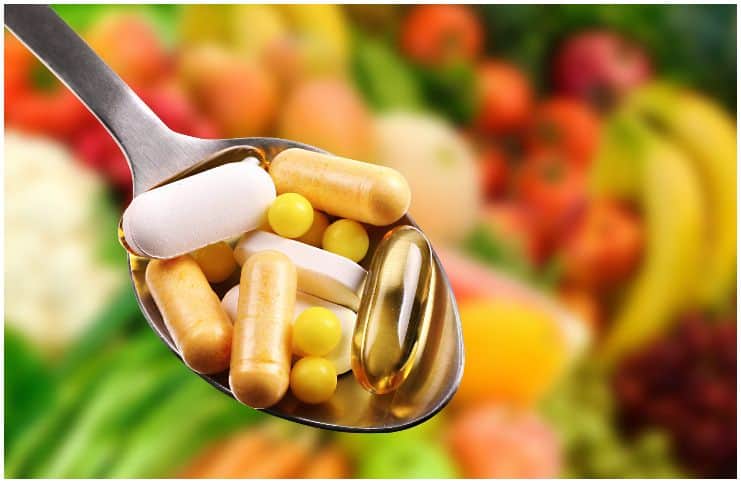Selenomethionine vs Selenium Yeast – Differences:
Selenomethionine
It is selenium bound to the amino acid methionine. Methionine is an essential protein-making amino acid that usually contains a sulfur molecule. Selenomethionine is the predominant form of selenium in cereals, Brazil nuts, fish, and legumes.
Although all selenium supplements are thought to produce similar effects in the human body, selenomethionine is more easily absorbed than non-organic forms of selenium like selenate.
Health Benefits
Cancer
Organic selenium compounds act on multiple pathways to attack cancer on a variety of different fronts, at many different stages, according to a study done at the University of Illinois at Chicago.
Moreover, selenium supplementation has been studied in numerous types of cancer, including thyroid, bladder, liver, esophageal, gastric, colorectal, prostate, lung, skin, ovarian, and pancreatic cancer.
Another study done by the National Cancer Institute established that the return of precancerous colon polyps after medical surgery was reduced substantially when the sufferer took antioxidants such as selenium.
Diabetes
Oxidative stress plays a pivotal role in the development of diabetes complications
This, in turn, can cure diabetes-related problems like neuropathy, retinopathy (a diabetes complication that is caused by damage to the blood vessels of the light-sensitive tissue at the back of the eye), and cataracts.
Antioxidant Properties
Selenium has a synergistic effect with other antioxidants, such as vitamin E, enabling the human body to defend against the damage of free radicals and fight oxidative stress.
Free radicals are generated by the body through exposure to different physiochemical conditions, numerous endogenous systems, or pathological states.
Oxidative stress is basically an imbalance between the production of free radicals and the capacity of the human body to detoxify or counteract their negative effects through neutralization by antioxidants.
Asthma
Asthma is a disease of the lungs that occurs when there is inflammation and narrowing of the airways. According to the Centers for Disease Control and Prevention, about 31 million people in the United States have asthma.
Studies established that people with asthma may have lower selenium levels compared to people without asthma.
Heart Health

Boosts The Immune System
Along with other minerals, selenium strengthens your response to infections and bolsters the level of white blood cells.
Prevents Selenium Deficiency
According to statistics, around 0.7 billion people worldwide suffer from a deficiency in this essential trace mineral. Furthermore, even more people consume less selenium than is required to provide disease-prevention benefits.
A selenium deficiency can cause the following symptoms:
- miscarriages;
- mental retardation;
- goiter;
- mental slowing;
- extreme fatigue.
Also, the body becomes more susceptible to illness caused by other biochemical, nutritional, or infectious diseases. More importantly, a selenium deficiency contributes to Kashin-Beck disease, a joint disease that results in degeneration, atrophy, and necrosis of cartilage tissue in the joints.
Alzheimer’s Disease
AD is a progressive disease that destroys memory and other mental functions. According to research, selenium supplements may have a beneficial role in preventing Alzheimer’s disease.
Selenium Yeast
Selenium yeast is a form of supplemental selenium, that is grown in a medium containing inorganic selenium, commonly sodium selenite.
Side Effects
Additional selenium intake may benefit individuals with low status, however, people with adequate to high statuses of selenium in their bodies should not take selenium supplements as they might be affected negatively and experience toxicity.
From dietary sources, selenium toxicity due to overdose is rare, but an overdose of selenium supplements could have negative effects.
These may include:
- hair loss;
- a metallic taste in the mouth;
- a garlic-like smell of the breath;
- skins rashes and lesions;
- brittle nails;
- irritability;
- decaying teeth;
- fatigue;
- neurological abnormalities;
- gastrointestinal problems like nausea.
Studies also revealed that long-term intake of selenium supplements may increase your risk for prostate cancer, skin cancer, and type 2 diabetes.
Moreover, avoid taking selenium supplements without consulting a healthcare provider if you belong to any of the following groups:
- people at risk for skin cancer;
- people who have had skin cancer;
- people diagnosed with hypothyroidism (underactive thyroid or low thyroid).
Recommended Daily Value
The recommended Daily Value for selenium is 55 mcg a day for adults. During pregnancy, the DV is 60 mcg per day, while for lactating women, the DV is 70 mcg a day.
READ MORE: Leucine vs Isoleucine
Bottom Line – Selenomethionine vs Selenium Yeast
Selenomethionine is a highly bioavailable, organic source of selenium that is used in numerous dietary supplements. It exists in two forms: D-selenomethionine and L-selenomethionine. Of these, D-selenomethionine is biologically active. Approximately 90% of selenomethionine is absorbed.
Selenium yeast is a form of selenium that is obtained by fermenting Saccharomyces cerevisiae (the main yeast utilized in biotechnology worldwide). Selenium yeast supplements could potentially cause the build-up of selenium in tissues to toxic levels, according to the European Community Scientific Committee on Food.
In conclusion, all forms of selenium are well absorbed, but the absorption of selenomethionine is better. Also, selenomethionine supplements appear to be safer than selenium yeast.
READ MORE: Citrucel vs Metamucil For Constipation
Note
The best form of selenium is from nutrition. To get the best selenium benefits and ensure intake is sufficient, you should consume foods rich in selenium, like:
- sunflower seeds;
- Brazilian nuts;
- whole grains;
- mushrooms;
- asparagus;
- broccoli;
- chia seeds;
- mustard seeds;
- pinto beans;
- garbanzo beans (chickpeas).
More importantly, do not take selenium supplements if you include Brazil nuts in your regular diet, as 1 ounce of Brazil nuts contains about 544 mcg of selenium, which is substantially more than you need in a day.
READ THIS NEXT: Zinc Citrate – Side Effects
References https://academic.oup.com/jn/article/130/7/1653/4686211 https://www.ncbi.nlm.nih.gov/pubmed/17696828 https://www.ncbi.nlm.nih.gov/pmc/articles/PMC2682996/


